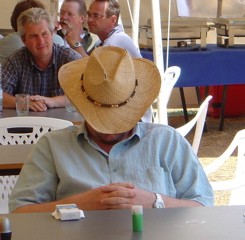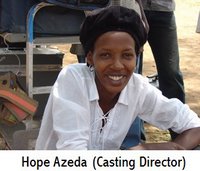“I challenge you not to be affected by its power.”-Five-star review of Shooting Dogs by MusicOMH.com Following Hotel Rwanda's endeavours to tell the world about the Rwanda genocide of 1994, Shooting Dogs revisits events leading up to the shocking violence. Director Michael Caton-Jones (Scandal, Memphis Belle, Rob Roy) tells the (partially) true story of a catholic priest and his school in the Rwandan capital Kigali which becomes a safe haven for thousands of refugees when the Rwandan president is killed and Hutu militia begin to turn on the minority Tutsi civilians.
John Hurt plays the priest. His school is being used by a detachment of Belgian UN troops as a base from which to monitor the fragile peace in Rwanda. Hugh Dancy (Black Hawk Down) is Joe, fresh faced young teacher, on a gap year of sorts who stays at the school. When the Rwandan president's plane is brought down and a coup becomes apparent, the Hutu militia's attacks on the Tutsi population leads to the school becoming a safe haven for the persecuted.
Joe is an upper middle class lad who's completely unprepared for the responsibilities and subsequent decisions he has to face as the situation erupts around him. Having naively promised his favourite student Marie that everything will be okay for her and her family, he is then faced with the choice of escaping with the exiting UN troops or staying to almost certain death with the Tutsi refugees, now completely unprotected from the preying Hutus surrounding the school.
There's a lot of controlled anger in the film, not simply aimed at the machete-wielding Hutu militia but at the impotent UN, whose troops not only fail to act in the midst of the genocide, but are ordered to pull out when it starts looking dangerous. The film shows how UN Capitaine Delon (played by Dominique Horwitz) is under mandate not to maintain peace, or even protect civilians, but to simply 'monitor' the situation as it degenerates.
Similarly, Rachel, a BBC war journalist reporting on the situation (played by Nicola Walker, who manages to look like a young, cockney Kate Adie), shockingly vocalises the West's attitude to the genocide when she compares her own reaction to what she felt when reporting the Bosnian genocide: "Any time I saw a dead Bosnian woman I thought that could be my mum - but here they're just dead Africans".
Dancy puts on an impressive performance as Joe while Hurt, as usual, provides exactly the right combination of gravitas and humanity in his role as a pretty saintly figure. Even more touching is the fact that many people working on the film are survivors who lost friends and family during the massacre.
Shooting Dogs is an astonishing and important film which everyone should go see; not only to learn about what happened in Rwanda, but to also appreciate a well-crafted, well-acted movie that examines the difficult decisions people are forced to make in extreme situations. I challenge you not to be affected by its power. *****
- Sara McDonnell
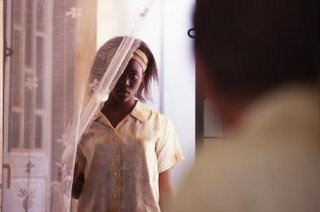

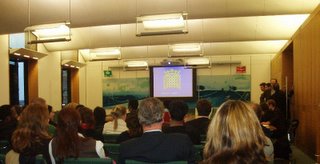
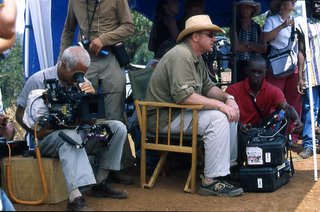
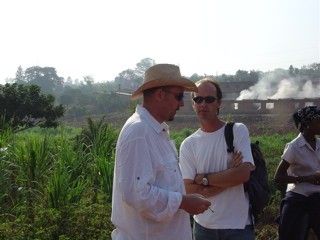
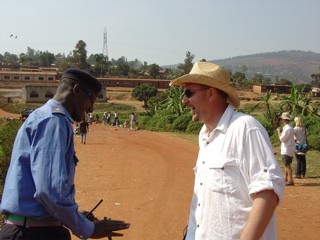
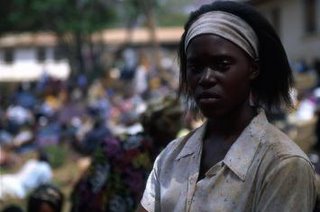
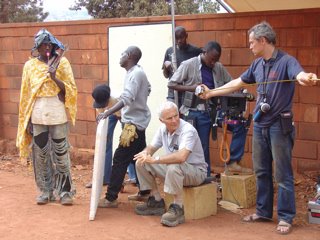
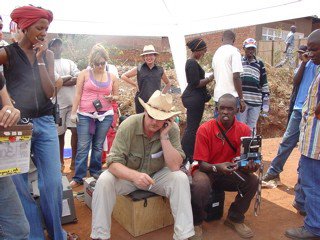
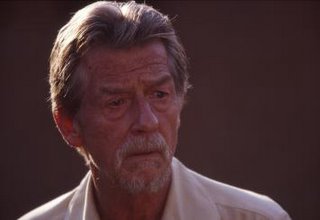
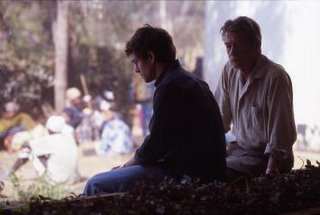
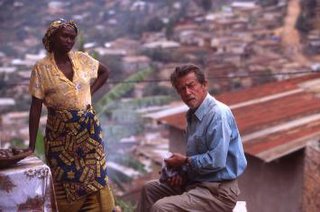


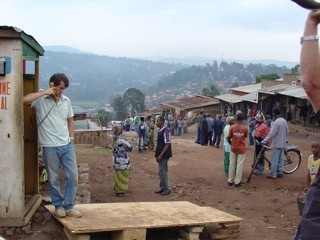
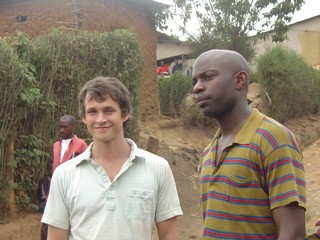 Hugh looking rather pleased with himself with fellow actor David Gyasi who plays 'Francios'
Hugh looking rather pleased with himself with fellow actor David Gyasi who plays 'Francios'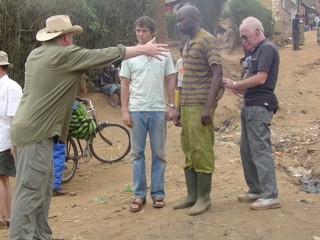 Director Michael Caton-Jones talking about the next scene to Hugh and David who is being fitted with a mic by sound man Chris.
Director Michael Caton-Jones talking about the next scene to Hugh and David who is being fitted with a mic by sound man Chris. 